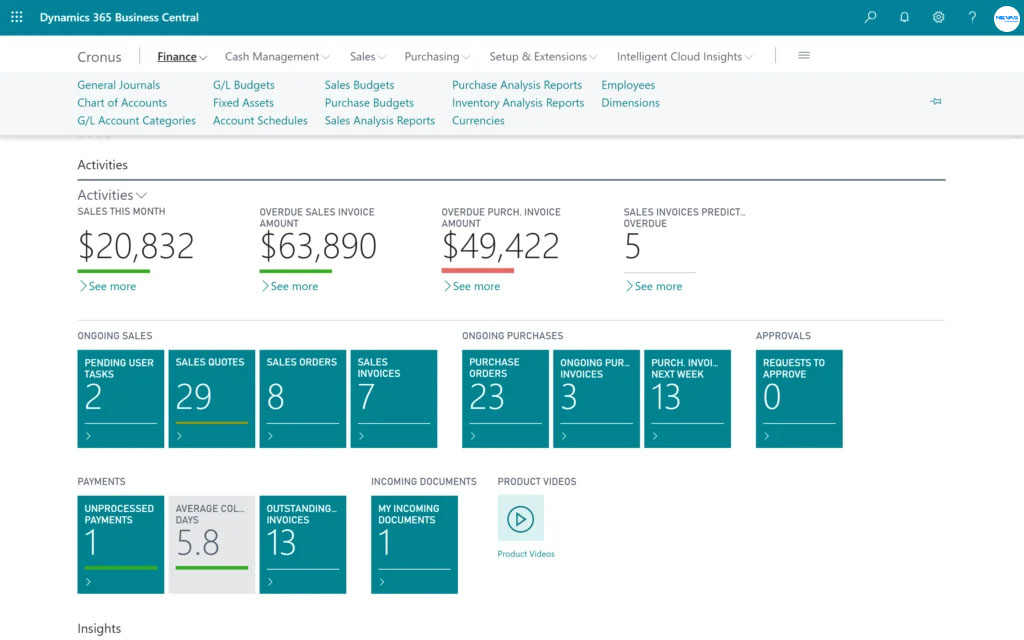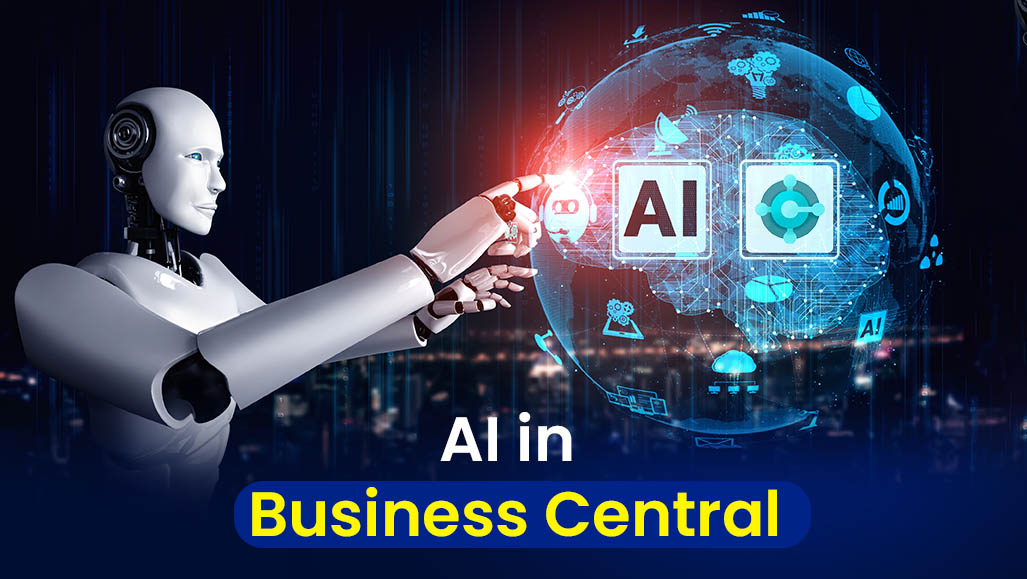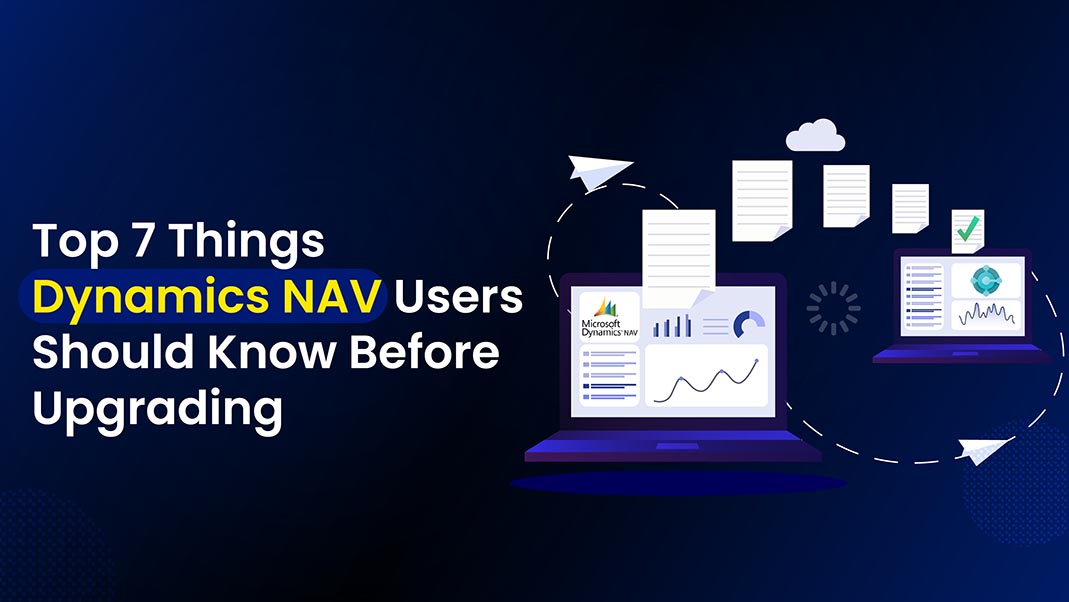Best ERP System for Construction Industry 2025
Construction projects are intricate endeavors with numerous moving parts, where challenges can arise at any stage—be it planning, design, construction, or post-construction management. Common obstacles often include disconnected systems, miscommunication, and outdated manual processes that fail to keep up with the industry’s demands. By adopting top-tier ERP software, construction businesses can overcome these hurdles, streamlining operations and integrating essential tasks into a unified, efficient system.
Selecting the right ERP software for your business can be challenging, with countless options available, each offering unique strengths and limitations. That’s where we come in—to guide you through the top ERP solutions for construction industry in 2025, ensuring you find the perfect match for your specific business needs.
Advantages of ERP System in the Construction Industry
Anyone who has worked on a construction project knows how easily things can go off track. Budgets can soar, deadlines can slip, and communication between stakeholders can fall apart. ERP software directly confronts these challenges, delivering powerful benefits that can streamline and transform your business operations.
1. Centralized Data and Project Management
A key benefit of ERP software is its ability to centralize all project data. Imagine having all the details of a project—timelines, costs, labor, and equipment—in one accessible location. This provides you with a comprehensive view of your project at any moment, eliminating the need to search for documents or track down the project’s current status.
2. Enhanced Team Collaboration and Communication
ERP implementation services ensure that all parties, from architects to project managers and contractors, stay informed. Whether it’s sharing design revisions or updating timelines, ERP software helps avoid costly delays due to miscommunication. It connects diverse teams by providing everyone with access to the same accurate information.
3. Improved Budget Management
In construction industries, costs can escalate rapidly due to material shortages, unforeseen labor expenses, and weather delays, all of which impact profits. ERP software helps you track expenses in real time, providing the tools necessary to maintain control over your budget. By closely monitoring spending and making data-driven decisions, you can avoid budget overruns before they occur.
4. Regulatory Compliance and Risk Mitigation
Regulations in the construction industry are stringent, and failing to comply can lead to severe consequences. Whether it’s meeting health and safety standards, environmental guidelines, or labor laws, compliance is crucial. ERP System ensures your business remains compliant by monitoring regulations and generating reports to confirm adherence.
5. Growth Potential for Expanding Businesses
As your construction business grows, project management becomes increasingly complex. ERP solutions are designed to scale with your company, allowing you to manage the added workload, new employees, and more projects as you expand. Whether you’re acquiring more clients, tackling larger projects, or venturing into new markets, an ERP system will grow alongside your business, ensuring continuous efficiency and success.
Key Characteristics of ERP Systems/Software for the Construction Industry in 2025
In 2025, the best ERP Software for Construction Industry options are tailored to meet the needs of construction companies, regardless of their size. Here’s what to consider when selecting the right ERP software for your Construction business:
1. User-Friendly Interface
Construction teams often consist of individuals with different levels of technical proficiency. Your ERP software should be simple to use and easy to navigate, ensuring that everyone on the team can operate it efficiently. A complex system that demands excessive training can hinder adoption and lower the software’s effectiveness.
2. Access to Real-Time Data
Construction projects evolve rapidly, and your ERP system must be able to keep up. Real-time data access ensures that all team members, whether on-site, in the office, or working remotely, have the most current information available. This ability to access real-time data is vital for making fast decisions and maintaining the project’s momentum.
3. Tailored Customization Options
Each construction project and company is unique, and the best ERP Software for Construction Industry recognizes that. It enables you to customize workflows, dashboards, and reports to meet your specific needs. Whether it’s tracking costs or managing employee schedules, having the flexibility to tailor the software to your business is crucial for maximizing its potential.
4. Seamless Integration with Other Tools
Your construction company likely already uses a range of software solutions, including accounting tools, project management apps, and customer relationship management (CRM) systems. Your ERP system should seamlessly integrate with these tools, enabling smooth data transfer across platforms and minimizing the need for manual data entry.
5. Mobile Access for On-Site Workers
ERP software with mobile access enables your workers to enter data, review schedules, and send updates from their phones or tablets, regardless of their location. This feature is vital for providing real-time information from on-site teams.
Top 7 ERP Software for the Construction Industry in 2025
1. Microsoft Dynamics 365 Business Central

Dynamics 365 Business Central is an integrated cloud-based ERP software designed to streamline business processes across various industries. It offers comprehensive tools for financial management, operations, sales, and project management. With seamless integration with Microsoft products, Business Central helps businesses improve efficiency, gain real-time insights, and scale operations effectively.
Advantages
- Seamlessly integrates with other Microsoft tools.
- Adapts to businesses of all sizes.
- Offers powerful data analytics and reporting capabilities.
Dynamics 365 Business Central Plans and Pricing
- Dynamics 365 Business Central Essentials – $70 user/month
- Dynamics 365 Business Central Premium – $100 user/month
- Dynamics 365 Business Central Team Members – $8 user/month
Learn more about Business Central pricing.
2. Sage
Sage is a highly trusted name in construction ERP software, recognized for its advanced financial management tools. It supports construction businesses of all sizes in efficiently managing both their accounting and project management needs.
Advantages
- Robust financial management features
- Outstanding project tracking tools
- Ideal for small and medium-sized construction businesses
Drawbacks
- Restricted mobile capabilities
- Lacks extensive features for large, complex projects
Pricing
Sage pricing begins at approximately $10,000 per year for small businesses, but the cost can vary based on the size of your company and its specific requirements.
3. ServiceNow ITSM
While originally designed for IT service management, ServiceNow ITSM is becoming increasingly popular in construction for its powerful process automation and asset management capabilities.
Advantages
- Sophisticated process automation
- Ideal for handling multiple complex projects
- Instant access to real-time data
Drawbacks
- A steeper learning curve for new users
- Higher cost, particularly for smaller businesses
Pricing
ServiceNow ITSM pricing generally falls between $30,000 and $50,000 per year, depending on your business size and the extent of customization needed.
4. Viewpoint
Viewpoint is a cloud-based ERP system specifically designed for construction companies, offering integrated solutions for accounting, project management, and human resources in one platform.
Advantages
- Comprehensive construction-specific features
- Cloud-based, enabling easy access from anywhere
- Excellent customer support
Drawbacks
- Can be expensive for smaller firms
- Limited integration with third-party applications
Pricing
Viewpoint pricing starts at approximately $2,000 per month, with additional costs for premium features.
5. ClickUp
ClickUp is a versatile project management tool, popular in the construction industry for its flexibility and user-friendly interface.
Advantages
- Highly customizable workflows
- Affordable for small to medium businesses
- Great for task management and team collaboration
Drawbacks
- Not specialized for construction
- Lacks advanced financial tools needed for large projects
Pricing
ClickUp starts at $5 per user per month, making it one of the more affordable options for smaller businesses.
6. SAP Business One
SAP Business One is a renowned ERP solution for large enterprises, offering powerful project management and financial tools for construction companies.
Advantages
- Ideal for large, complex projects
- Advanced project management features
- Customizable to meet your company’s needs
Drawbacks
- Expensive, making it challenging for smaller firms
- Can be complicated to use
Pricing
SAP Business One pricing typically starts around $100 per user per month.
7. Oracle Primavera
Oracle Primavera is an ERP solution known for its advanced scheduling and project management capabilities, ideal for large-scale construction projects.
Advantages
- Best suited for large-scale construction projects
- Advanced scheduling and project management features
- Customizable and scalable
Drawbacks
- Expensive, particularly for smaller businesses
- Can be overwhelming for smaller projects or companies
Pricing
Oracle Primavera pricing starts at around $3,000 per user per year.
Conclusion
As we move into 2025, selecting the right ERP software for the construction industry is more critical than ever. A professional ERP system can elevate your construction business by providing real-time updates, enhanced budget control, and improved team collaboration. Whether you’re a small business or a large enterprise, the ERP solutions highlighted in this blog offer robust features tailored to meet your specific needs. Be sure to consider your budget, business size, and project requirements when choosing the ideal ERP software to ensure sustainable growth and success.
Nevas Technologies, a leading Microsoft Dynamics 365 Partner, is an ideal choice for organizations seeking seamless digital transformation. With a proven track record in deploying and customizing ERP solutions across various industries, Nevas Technologies combines technical expertise with in-depth business process knowledge. Their focus on delivering efficient, scalable ERP implementations ensures businesses of all sizes can achieve optimal results.
Partnering with Nevas Technologies allows businesses to maximize their ERP investment, utilizing advanced technology solutions to boost growth, efficiency, and competitive edge. As you plan your ERP strategy for 2025, consider the long-term advantages of collaborating with an experienced partner like Nevas Technologies to secure your organization’s future in the digital age.
FAQs: Best ERP Software for the Construction Industry
1. What is the most essential feature to consider in construction ERP software?
The key feature to prioritize is project management capabilities that enable real-time tracking of budgets, schedules, and team progress.
2. Is ERP software affordable for small construction companies?
Yes, affordable ERP solutions are available for small businesses, including ClickUp and Sage, which provide scalability and budget-friendly pricing options.
3. In what ways does ERP software assist with compliance?
ERP software monitors regulations and ensures all required documentation is properly managed, helping your company maintain compliance with industry standards.
4. What distinguishes cloud-based ERP systems from on-premise ERP systems?
Cloud-based ERP systems are hosted online, allowing access from any location, whereas on-premise systems are installed on local servers, providing greater control but necessitating more maintenance.
5. How does ERP software help enhance project timelines?
ERP software centralizes data and enhances communication between teams, helping to prevent delays and keeping projects on track.




